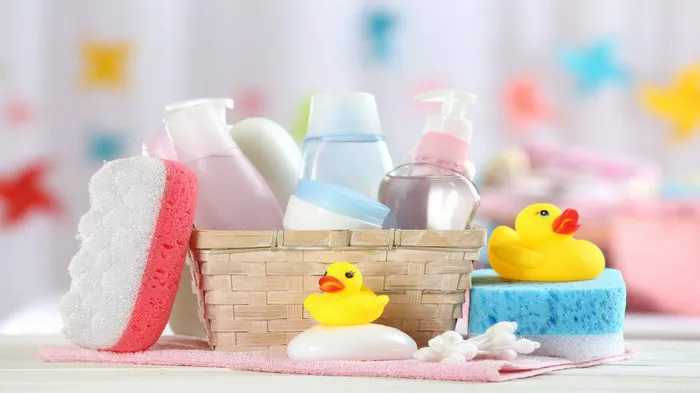As a parent, one of the most common questions that may cross your mind is how long you can leave a prepared baby bottle sitting out before it becomes unsafe for your little one to consume. Whether you are a new parent or have been on this journey before, ensuring the safety and well-being of your baby is always a top priority. In this comprehensive guide, we will delve into the factors that affect the shelf life of prepared baby bottles, the importance of proper storage, and essential tips for maintaining the freshness and safety of your baby’s milk.
Understanding the Shelf Life of Prepared Baby Bottles
The shelf life of a prepared baby bottle depends on various factors, including the type of milk used (breast milk or formula), ambient temperature, and hygiene practices. Both breast milk and formula can spoil if not stored properly, potentially leading to bacterial contamination and causing digestive issues or even illness in infants.
Breast milk is known for its remarkable ability to provide essential nutrients and antibodies that support a baby’s immune system. However, it is also highly perishable. According to the American Academy of Pediatrics (AAP), freshly expressed breast milk can be kept at room temperature (up to 77°F or 25°C) for up to four hours. After this time, any unused portion should be discarded to prevent bacterial growth.
Formula milk, whether powdered or ready-to-feed, has specific guidelines for storage and usage outlined by the manufacturer. Typically, prepared formula can be left at room temperature for a shorter duration compared to breast milk. Most manufacturers recommend using prepared formula within one to two hours after preparation, especially if it has been exposed to room temperature conditions.
Factors Influencing Shelf Life
Several factors can influence the shelf life of a prepared baby bottle:
1. Temperature: Temperature plays a crucial role in determining how quickly bacteria multiply in milk. Warmer temperatures promote bacterial growth, while cooler temperatures slow it down. It is essential to store prepared baby bottles in a refrigerator if they are not consumed immediately, as this helps maintain freshness and safety.
2. Hygiene Practices: Proper hygiene practices are paramount when handling and preparing baby bottles. Washing your hands before handling bottles and using clean utensils and bottles can help minimize the risk of contamination. Additionally, sterilizing bottles and nipples before each use further reduces the likelihood of harmful bacteria being introduced to the milk.
3. Exposure to Air and Light: Exposure to air and light can also affect the quality of prepared baby bottles. Oxygen can lead to oxidation, which may cause changes in the taste and smell of the milk. Likewise, exposure to sunlight or fluorescent light can degrade certain nutrients in breast milk. It is advisable to store prepared bottles in opaque containers or cover them with a lid to minimize exposure to light and air.
4. Type of Milk: As mentioned earlier, breast milk and formula have different shelf lives due to their composition and properties. Breast milk contains live immune cells and enzymes that help protect against infections, but it is more susceptible to bacterial contamination. Formula milk, on the other hand, is sterile when prepared according to the manufacturer’s instructions but can become contaminated if not handled properly.
Proper Storage and Handling Tips
To ensure the freshness and safety of prepared baby bottles, follow these storage and handling tips:
1. Refrigeration: If you are not feeding your baby immediately after preparing the bottle, store it in the refrigerator at 40°F (4°C) or below. Make sure to use a clean and airtight container to prevent any odors from permeating the milk. Refrigerated breast milk can be kept for up to four days, while prepared formula should be consumed within 24 hours.
2. Avoid Freezing Breast Milk: While freezing breast milk is a common practice for long-term storage, it is not recommended for freshly expressed milk that will be consumed within a few days. Freezing and thawing can alter the composition of breast milk and may lead to a loss of nutrients and antibodies.
3. Label and Date Bottles: To keep track of the freshness of prepared baby bottles, label each bottle with the date it was prepared. This will help you prioritize bottles based on their expiration dates and ensure that you are using the oldest bottles first.
4. Discard Unused Portions: If your baby does not finish a bottle within the recommended time frame, discard any remaining milk. It is better to err on the side of caution rather than risking your baby’s health by consuming spoiled milk.
5. Monitor Temperature: Keep an eye on the temperature of the milk during feeding times, especially if you are using a bottle warmer or heating breast milk in a warm water bath. Avoid overheating the milk, as this can destroy valuable nutrients and create hot spots that may scald your baby’s mouth.
6. Practice Good Hygiene: Wash your hands thoroughly before handling baby bottles, and use clean bottles, nipples, and utensils for preparation. Sterilize bottles and nipples regularly, especially if your baby is younger than three months old or has a weakened immune system.
7. Follow Manufacturer’s Guidelines: Always follow the manufacturer’s instructions for preparing and storing formula milk. Different brands may have slightly different recommendations, so it is essential to read the labels carefully.
Conclusion
Knowing how long you can leave a baby bottle once made is crucial for ensuring the safety and well-being of your little one. By understanding the factors that influence the shelf life of prepared baby bottles and following proper storage and handling practices, you can help minimize the risk of bacterial contamination and ensure that your baby receives fresh and nutritious milk every time. Remember to prioritize your baby’s health and safety above all else, and don’t hesitate to consult with a healthcare professional if you have any concerns about feeding practices or milk storage.


